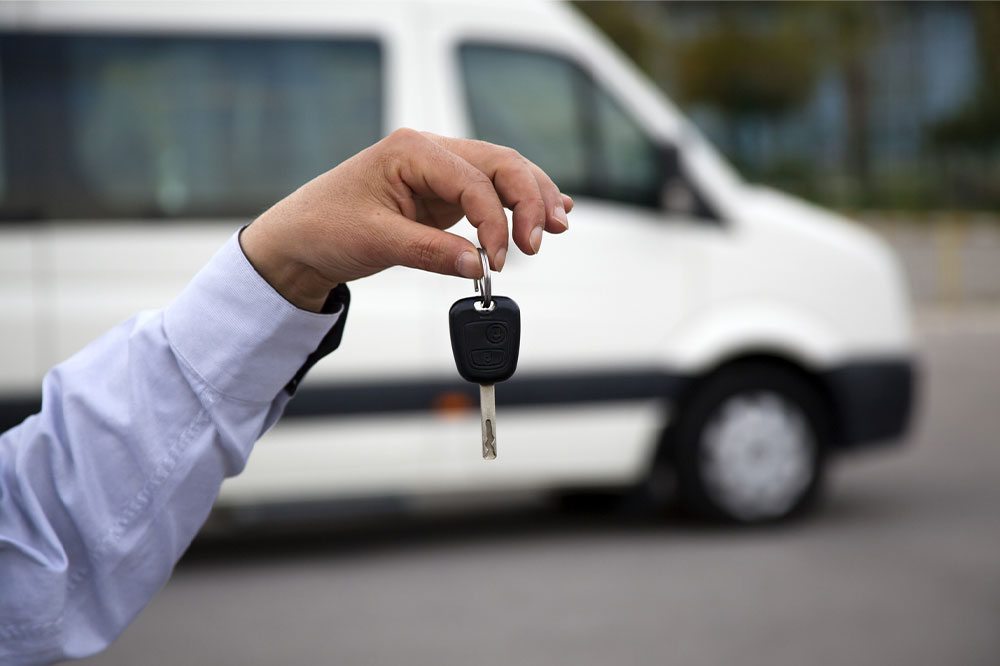10 Things to Keep in Mind While Renting a Van

Renting a vehicle has become more convenient than ever before. You can choose from a variety of options, such as rental box trucks, pickup trucks, cargo vans to haul your belongings around, or sedans and SUVs to travel comfortably. No matter your requirements, there are certain do’s and don’ts to keep in mind during a van rental to ensure a seamless experience. Here are a few tips to consider when renting a van:
Take your time
When you are used to driving your vehicle, adjusting to a new one can take some time. Be sure to look around to understand where the controls are located and familiarize yourself with them before leaving the parking lot. On the road, drive slowly and ease into parking spaces instead of rushing to get things done. This will help you have a pleasant and safer driving experience.
Be mindful of your insurance
To know what your car insurance policy covers, it’s important to review your insurance papers. This will help you determine if you need to buy additional renter’s insurance for your rental van from the company, depending on your coverage.
Compare your choices
People living in larger cities are likely to have more rental companies to choose from. Do your homework and compare the prices offered by different companies, so you can get the best price possible. Price alone may not be the deciding factor when choosing. While a cheap rental van may sound attractive, look into the other features and services offered, and weigh them according to your needs. Read the full terms and conditions before finalizing your rental agreement.
Check the documents and the car
Just like you would when making any other purchase, it’s important to carefully review the paperwork before renting a van. Take a close look at the agreement and watch out for any additional charges that may have been included. Once you have the van, inspect it for any damages and promptly inform the rental company if you notice any. Doing this before you drive off the renter’s premises can help you save your deposit and avoid any unnecessary hassles or damage charges later.
Try to have one designated driver
If you want to avoid incurring additional charges, try to have one or two designated drivers (some may exclude spouses or domestic partners). Even if you have drivers over the age of 25, most policies will charge additional compensation for every driver you register. Additionally, each driver will have to meet the age requirements, appear at the rental counter with the primary renter, and present a valid driver’s license.
Don’t rent from an unlisted company
When renting a van, it’s important to consider smaller companies as they may offer better rates. However, it’s crucial to check their authenticity by looking at reviews and listings beforehand. Renting a van from an unlisted company can cause trouble later on, especially if you run into a situation where your car needs to be replaced. On the other hand, renting from a larger company will allow you to choose between multiple rental options and have a backup if needed. You are also likely to receive better service during a vehicle breakdown, as many big companies feature an in-house repair station.
Don’t ignore the restrictions
Rental cars are often accompanied by several restrictions, so make sure you check with the company before you leave. Some of these may include speed or distance limits, and you may be liable to pay extra when you cross them. Avoid any penalties and have a smooth experience by considering these details before you finalize your rental agreement.
Don’t wait until the last minute
It’s ideal to book your van as soon as you learn of your requirements. By reserving a van in advance, you can get the vehicle you need at the best possible price. This will also help you save time for other important tasks. Communicating with a van rental company in advance about your requirements can help them plan more efficiently and offer better service throughout your rental period. Of course, you can always choose to cancel your rental reservation later. Some companies may charge a premium for last-minute cancellations.
Don’t be in a rush to drive off
There are several things to learn about a car/van when you first begin to drive it. Don’t be in a rush to drive off the parking lot. Speak to the rental company and have all your questions answered. Chart your driving route in advance for a more comfortable and confident van-driving experience.
Don’t use a debit card for the rental
Debit cards are not always accepted for rentals, and most places do not accept cash. Car rental companies prefer payments made with credit cards, as it gives them a higher assurance of payment. However, as a user too, there are several perks of using a credit card during a rental payment. The two biggest advantages are protection against fraud charges and the ease of disputing errors. If a rental company raises an invoice that you do not agree with, you can dispute them without losing access to a portion of your money (as you would with a debit card). Plus, you also stand a chance to win points or rewards when using a credit card.
Once you have rented your van, it is time to put it to work. Driving a van is a different experience from driving a Sedan or an SUV. Remember to be mindful of the van’s length when making turns, changing lanes, and parking. Ask someone for help if necessary. Many areas also have height restrictions, so check the van’s height beforehand to save yourself from uncomfortable situations. We hope these tips mentioned above make your van rental experience seamless.







